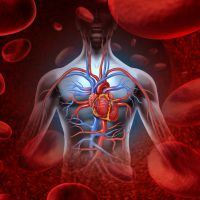Summary: Large-scale Veterans Affairs database study reaffirms safety and benefits of testosterone replacement, in men.
A US Veterans Affairs database study of more than 83,000 male subjects found that men whose low testosterone was restored to normal through gels, patches, or injections had a lower risk of heart attack, stroke, or death from any cause, versus similar men who were not treated. Rajat Barua and colleagues analyzed data collected on 83,010 male veterans with documented low total testosterone levels, dividing them into three clinical groups: those who were treated to the point where their total testosterone levels returned to normal (Group 1); those who were treated but without reaching normal (Group 2); and those who were untreated and remained at low levels (Group 3). Importantly, all three groups were “propensity matched” so the comparisons would be between men with similar health profiles. The researchers took into account a wide array of factors that might affect cardiovascular and overall risk. The average follow-up across the groups ranged from 4.6 to 6.2 years. The sharpest contrast emerged between Group 1 (those who were treated and attained normal levels) and Group 3 (those whose low testosterone went untreated). The treated men were 56% less likely to die during the follow-up period, 24%less likely to suffer a heart attack, and 36%less likely to have a stroke. The differences between Group 1 and Group 2 (those who were treated but did not attain normal levels) were similar but less pronounced. The study authors conclude that: “normalization of [total testosterone] levels after [testosterone replacement therapy] was associated with a significant reduction in all-cause mortality, [myocardial infarction], and stroke.”
